The War Does Not Justify Its Goals
What Vladimir Putin wanted when he started the war against Ukraine, and what actually happened
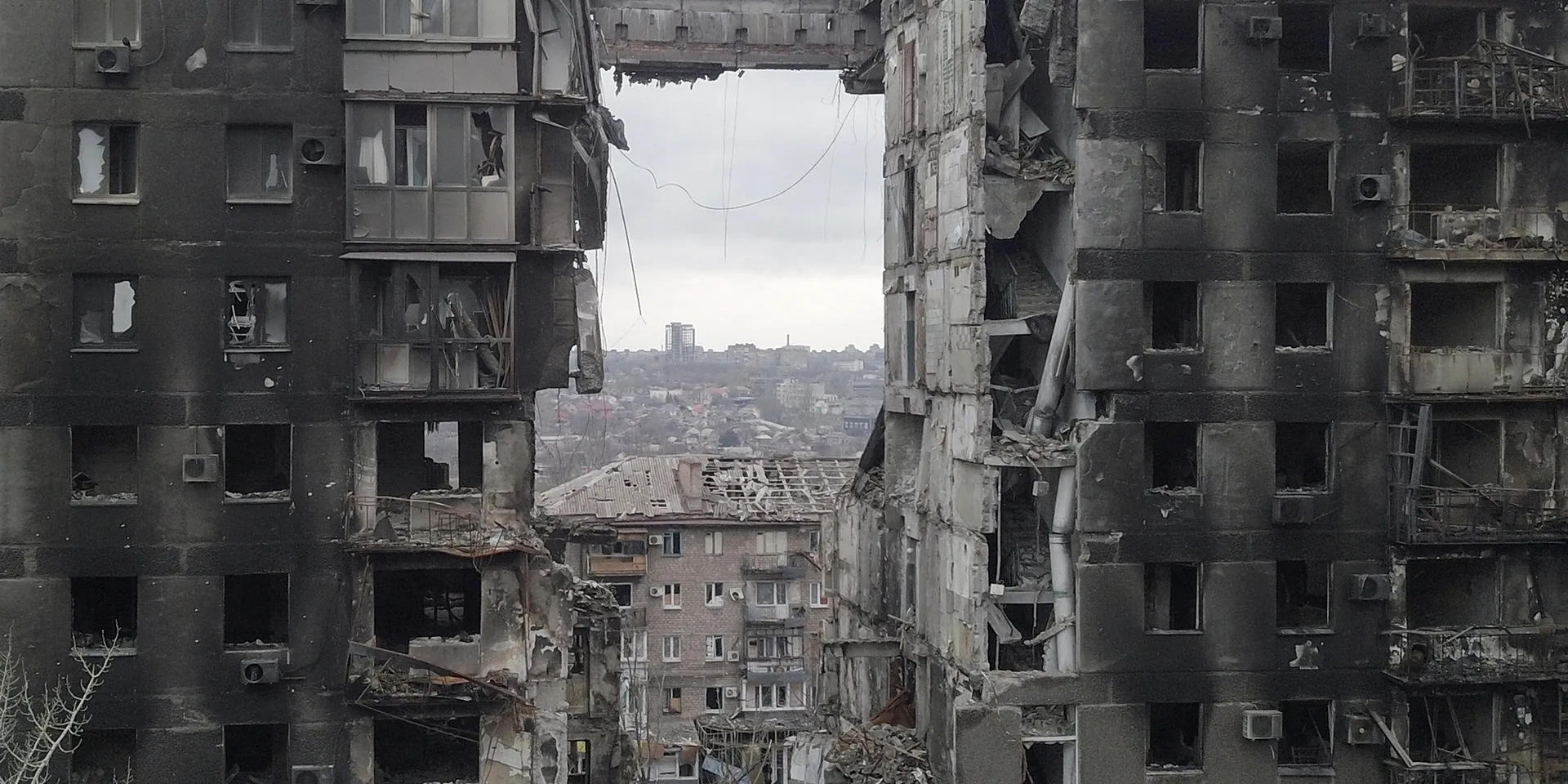
May 24 marks three months since Vladimir Putin unleashed a war against Ukraine. This war was a crime from the very beginning. But now it is clear that it also turned out to be meaningless. Putin called a military invasion of Ukraine the only possible way to ensure the security of Russia. Judging by the statements of the president and other Russian officials, the “special military operation” was supposed to protect the inhabitants of the Donetsk People's Republic (DNR) and Luhansk People's Republic (LNR), save our people, stop the advance of the NATO military bloc to the Russian borders and put an end to the “reckless course towards complete US domination.” The authorities also hoped to rally Russian society around the head of state. What came of it?
IStories found that during the war, the death rate of young males in the Russian regions increased significantly. And in just three months of the "special military operation" as many civilians died as in the previous 8 years of confrontation between the DNR and LNR with Ukraine. Meanwhile, the problems that Vladimir Putin wanted to solve with military force have only gotten worse. NATO has not stopped expanding – new members are rushing to join the alliance. Russia's influence in the world and its ability to compete with the US and other countries have decreased. And Russian society has split: bewilderment about the “special operation” is expressed even by employees of the Russian special services who are always loyal to the president.
Our people are not saved
In his February 24 address, Vladimir Putin insisted that a military invasion of Ukraine was necessary to "defend Russia, our people." In fact, this war, like any other, leads to an increase in mortality: thousands of military personnel and civilians die. And the long-term consequences are that Russia in the future will face a record birth crisis in the entire latest history.
Since the beginning of the war in Ukraine, according to the UN, 3,811 civilians have been killed, including 255 children, and another 4,278 civilians have been injured. The real numbers are much higher, because the information comes with a delay, and some messages are waiting for confirmation. “Most of the civilian casualties recorded were caused by the use of explosive weapons with a wide impact area, including shelling from heavy artillery and multiple launch rocket systems, and missile and air strikes,” the UN report says.
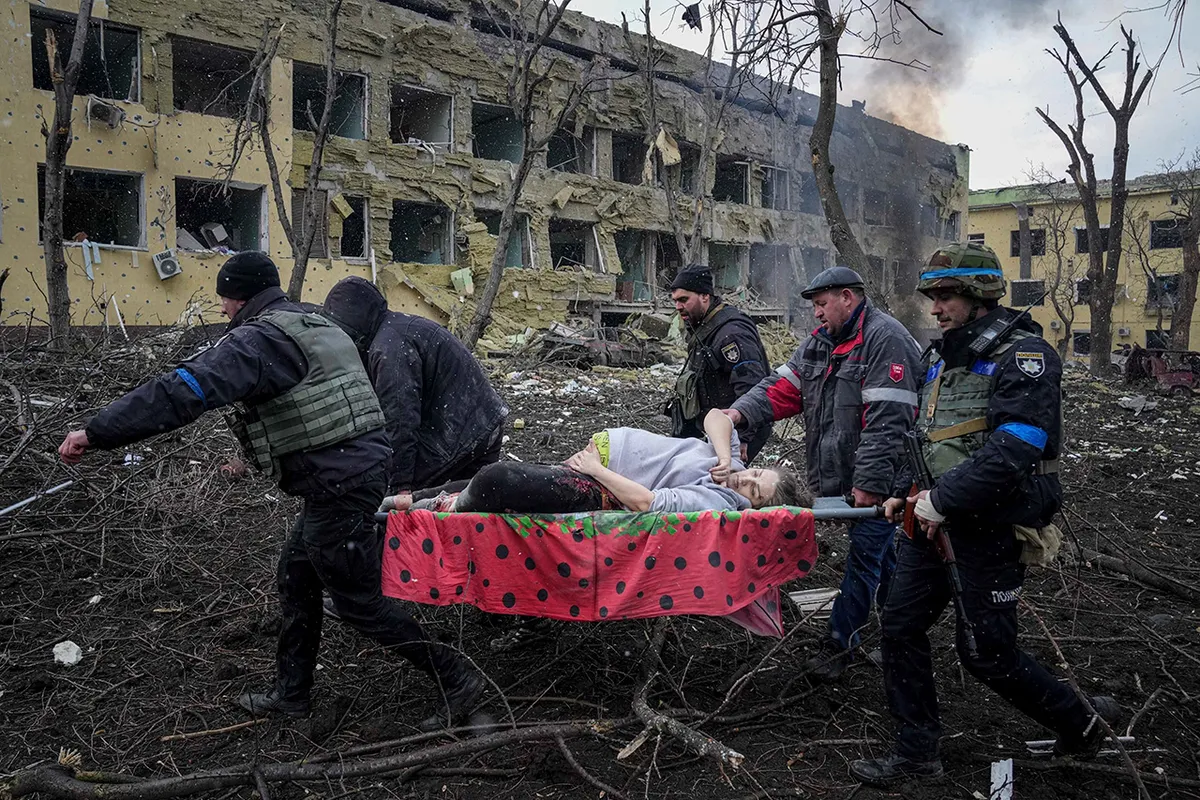
It is difficult to estimate exactly how many Russian soldiers died during the war, mostly young males. The Russian side has not reported on the dead for two months. The last time the Russian General Staff reported 1,351 dead. At the same time, the UK claims there are 15,000 dead Russian soldiers. And according to the Ukrainian side on May 20, Russia lost more than 28.5 thousand troops. IStories independently verifies all public reports of the dead in order to maintain its list of losses. At the moment, it has 2,622 names.
Even from these fragmentary data, it follows that the war increased the death rate of young males in Russia by 20% compared to peacetime. In the regions that sent the most military personnel to participate in the "special operation", the mortality rate of young men has increased significantly since February of this year. In Dagestan, North Ossetia, and Buryatia, the increase in mortality ranged from 100 to 140%.
A few days before the start of the war, the authorities of the DNR and LNR announced a full troop mobilization. And they limited the exit of the male population from controlled territories. They do not disclose the losses among the men called up for service (the DNR Ombudsman spoke about 1201 dead employees of law enforcement agencies since the beginning of 2022). But in percentage terms, they are hardly much less than the losses of contract soldiers who were sent to fight from the Russian regions.
For 3 months of the Russian "special operation" to save the DNR, LNR, about the same number of civilians died as in all 8 years of military clashes between the Ukrainian army and the armed forces of these republics — more than 3 thousand people. It should be taken into account that the figure of losses for 8 years (3404 people by the end of 2021) includes more than 2 thousand civilians who died in the midst of the conflict — in 2014-2015. Later on, civilians died less often: in 2021, according to the UN, 21 civilians were killed by random shells, unexploded ordnance and mines.
If the “genocide”, as Vladimir Putin called it, continued for 8 years in the East of Ukraine, then what can be said about the “special operation” that led to the same losses among the civilian population in just three months?
NATO expansion was not stopped
“The NATO alliance <...> is steadily expanding, the military machine is moving and coming close to our borders. <...> The military development of the territories adjacent to our borders, if we allow it, will continue for decades to come, and perhaps forever. And it will create a constantly growing, absolutely unacceptable threat for Russia. <...> Further expansion of NATO and the military development of the territory of Ukraine that has begun is unacceptable for us,” that is how Vladimir Putin explained the causes of the war in his address to the Russians on February 24.
But the war unleashed by Russia against Ukraine did not remove NATO from Russia's borders and did not limit the expansion of the alliance.
Three sources of IStories — former and current senior intelligence officers — believe that Russia's open military incursion into Ukraine has ensured NATO a comfortable, stable existence for decades to come. They recall that quite recently this bloc was shattered by internal contradictions: Turkey took the liberty of purchasing Russian weapons. The interests of some NATO members in the Middle East did not coincide with those of the United States. There were no indisputable arguments for accepting new members into the alliance. The meaning of NATO's existence was blurred. Former US President Donald Trump even threatened to withdraw the US from the alliance. And the increase in defense spending caused discussions and opposition from politicians.
With their "special operation" the Russian authorities breathed new life into NATO and fully justified the ever-increasing defense spending.
Now the "military development" of territories near the Russian borders will only accelerate. And Russia's border with the countries of the alliance will be doubled. At the time of the beginning of the Russian invasion of Ukraine, five countries of the alliance bordered the Russian Federation — Latvia, Lithuania, Norway, Poland and Estonia (the United States borders Russia only by sea). Ukraine got the opportunity to join NATO in 2008, but this process was frozen for 14 years. The old members of NATO did not want to spend money on the new poor members and shoulder their worries.
Now prosperous Finland wants to join NATO. Its border with Russia exceeds 1,200 kilometers. And also Sweden has shown the same intentions (it doesn't have a common border with Russia, only exclusive economic zones border). On May 18, in Brussels, the Secretary General of the alliance received membership applications from the ambassadors of Finland and Sweden. Both countries have reconsidered the risks to national security and in today's conditions see only one way to ensure it — to become members of NATO.
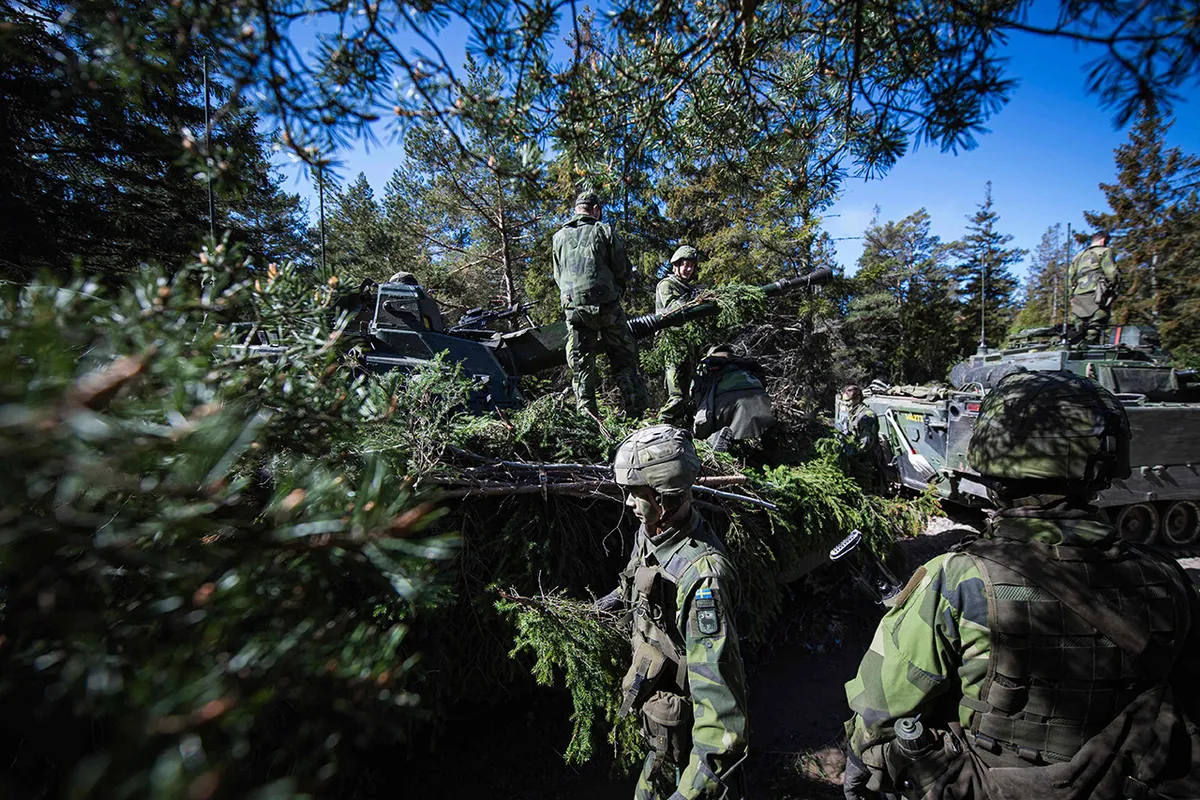
In May, Switzerland announced plans to lean closer to the alliance. The country has maintained military and political neutrality enshrined in the constitution since 1815. The Swiss Ministry of Defense is preparing a report on possible options for strengthening security, including through cooperation with NATO.
US dominance has not ended
“Our special military operation is designed to put an end to <...> the reckless course towards complete US domination,” Foreign Minister Sergey Lavrov said.
Sources of IStories from the Russian intelligence services doubt that the “special operation” undermined US dominance. By engaging in a military gamble, Russia severely limited its ability to compete with other countries.
American economic influence in Europe has only grown. Urgent US requests to limit the EU's reliance on Russian energy resources, such as abandoning the Nord Stream 2 gas pipeline and buying American liquefied natural gas, no longer seem too radical. Germany resisted this pressure to the last and called the gas pipeline an exclusively economic project, not related to politics. But after the start of Russia's "special military operation" in Ukraine, Nord Stream 2, in which investments exceeded 10 billion euros, simply died. Initially, the opponents of the project were the USA, Poland, Ukraine and the Baltic countries.
In 2021, the United States became the main supplier of liquefied gas to Europe. And in 2022, according to analysts, the US may become the largest supplier of liquefied natural gas in the world. Now the US is promising the Europeans to replace gas supplies from Russia, although this is expensive and difficult to do given the large volumes of pipeline gas. But nothing is impossible. Now Russia's former main European partner, Germany, intends to almost completely eliminate the need for Russian gas in 2024.
What is Russia losing? Gas and oil bring our country up to half of the budget revenues and account for more than half of all exports. Russia sells to Europe 70% of its gas and 60% of its oil and oil products. In just three months of the war, the European Union paid Russia more than 50 billion euros for oil and gas.
Europe is trying to agree on an embargo on Russian oil: to stop importing it within six months. And to stop import of oil products within a year. In addition, in April the European Union imposed a ban on the purchase of Russian coal. This is very beneficial for American coal companies. Their future supplies to Europe are expected to grow significantly and they have not seen such an increase since 2018.
Allies fail to save Russia
Foreign Minister Sergey Lavrov is confident that Russia is supported by the majority of countries. “They are, by and large, the majority. But the pressure they are under is not only unprecedented, I could never imagine such a thing,” said Lavrov expressing his surprise. The minister said that the US is trying to put pressure on China, India, Egypt, Turkey, and other countries because of their cooperation with Russia.
Due to the rupture of ties with the West, Russia just hoped to turn to Asia — primarily to China and India, in order to supply raw materials there and receive goods, services, and technologies. But in order to remain among the leaders in the supply of energy resources, it is necessary to increase their production. And, for example, traditional Russian oil fields are gradually being exhausted. The development of new often hard-to-reach fields and the production of hard-to-recover oil require technologies that Western companies possess.
The war in Ukraine resulted in the largest international oil and oilfield services companies with modern oil exploration and production technologies leaving the Russian market. And Russia did not have its own. Rosnedra (Russian Federal Subsoil Resources Management Agency) had to state that it would not be possible to develop offshore fields without these technologies. And Russia's current allies are unlikely to help in this.
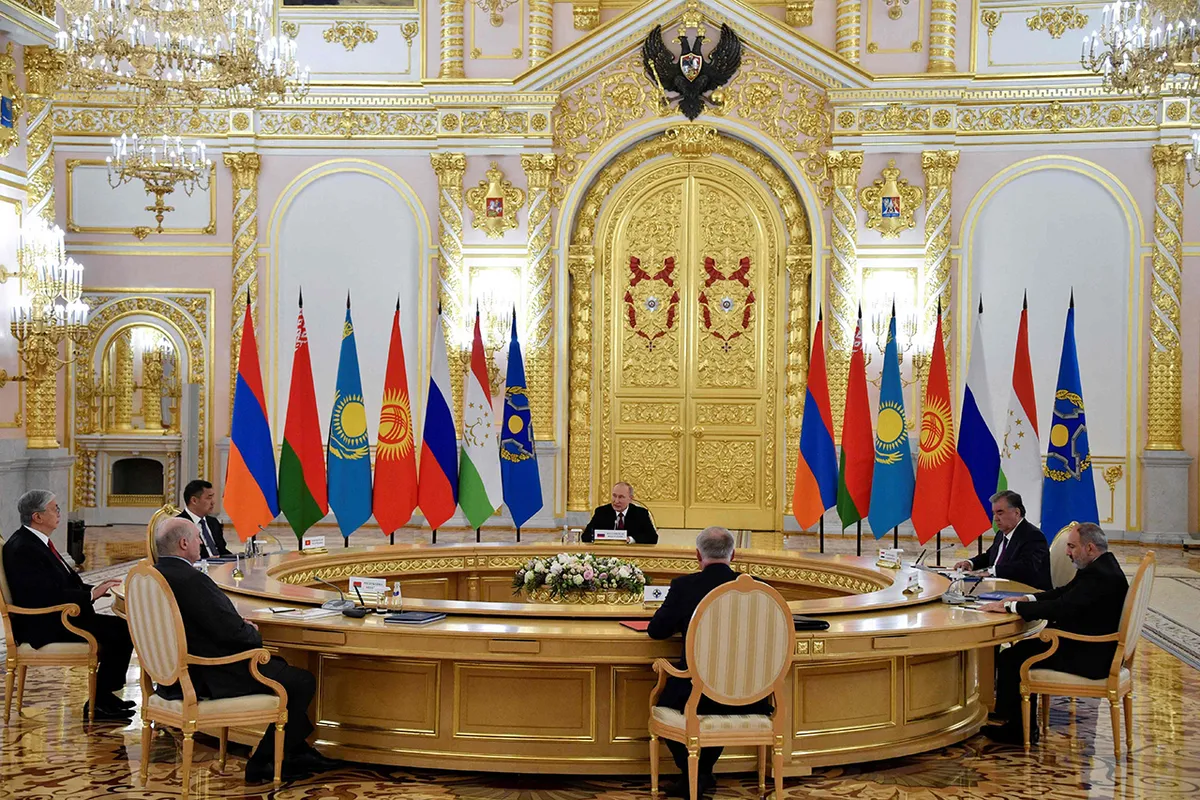
China does not impose sanctions against Russia, has increased its consumption of Russian oil, and even voted against an anti-Russian resolution on Ukraine at a special session of the UN Human Rights Council. But China does not dispute the measures already taken against Russia. In order not to fall under secondary sanctions, the Bank of China and ICBC (China's largest lending institutions) stopped issuing letters of credit to Chinese companies for the purchase of Russian raw materials. Immediately after the start of the “special military operation”, Chinese oil refineries began buying Russian oil at a significant discount. Negotiations are underway on gas, but even in this situation, the Chinese demand a 10% discount. In addition, some Chinese IT companies have stopped deliveries to Russia. Chinese shippers predictably stopped the transit of goods through Russia to Europe. China also refused to supply Russian airlines with spare parts for aircraft.
As for India, hopes for it are weak, although it has not imposed direct sanctions against Russia either. In April, the media learned that the Indian state corporation refused to purchase Russian oil after the US' calls not to increase the consumption of Russian energy resources. Even earlier, India stopped transactions for the purchase of Russian helicopters, formally not linking this to sanctions. And the Indian state bank issued a letter stating that it would strictly comply with the restrictions set by European and American sanctions against Russia and its structures.
Society is not united
“Competition in who is more patriotic is hardly necessary, especially at such a moment when we all need to be united <...> around our country, around our president,” said Putin’s press secretary Dmitry Peskov reflecting on patriotism.
Since the beginning of the Russian invasion of Ukraine, numerous polls (Russian Public Opinion Research Center (VTsIOM), Public Opinion Foundation (FOM), Russian field, the research project "Do Russians Want War?", Extremescan) show that the majority of Russians support the "special military operation". However, all these surveys are criticized by sociologists, since it is difficult to study public opinion in wartime, especially in countries with autocratic regimes. When answering questions, people may hide their position and try to give the “correct” answer in order to avoid reprisals. According to sociologist Maxim Alyukov, people may perceive polls as a tool of the government and that may result in their fear to answer the questions.
Despite massive state propaganda and the destruction of any independent media, the Russian authorities feel threatened by those who disagree with the war. A week after the invasion of Ukraine, a law was passed punishing the dissemination of "inaccurate information" about the actions of the Russian military (anything is considered such information, from value judgments to individual words). This law introduces a punishment of up to 15 years in prison. The State Duma also passed a law according to which one can be imprisoned for up to three years for calls for sanctions against Russia.
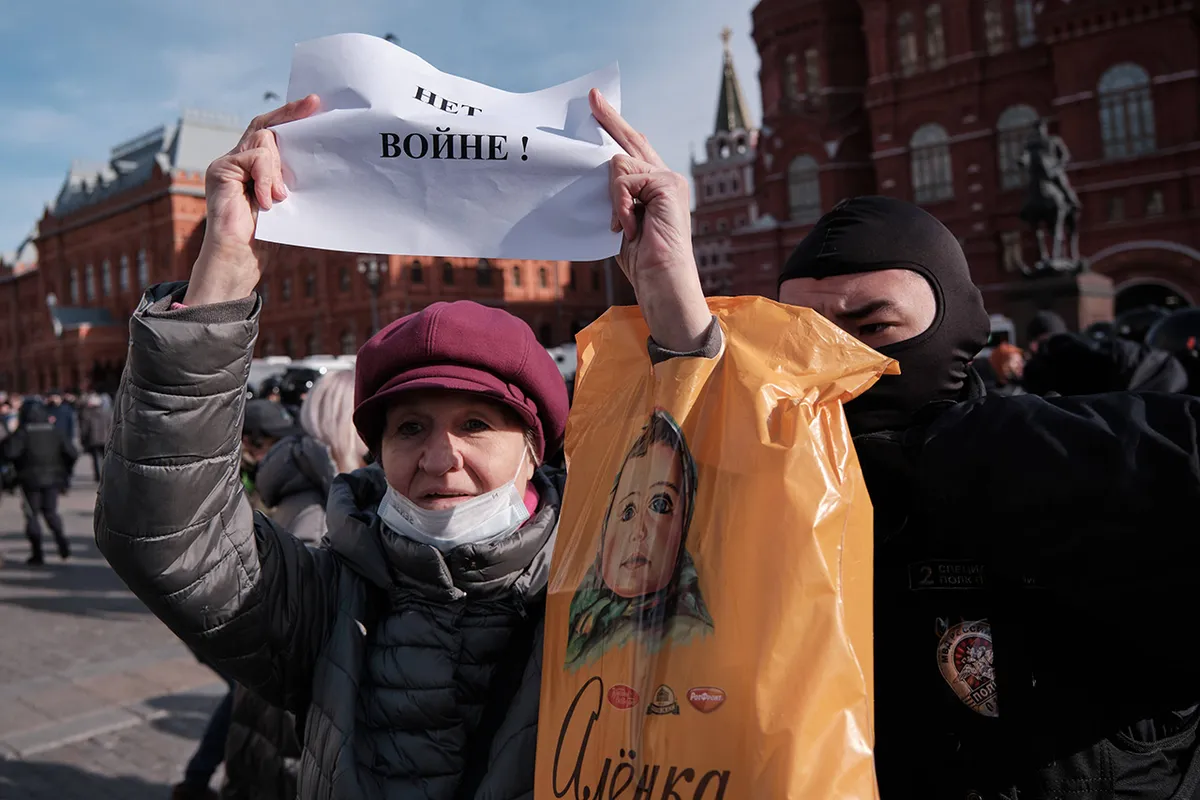
Russian media are forbidden to call what is happening in Ukraine a war and an invasion. Instead, they are required to use the wording “special military operation”. Media outlets that refused to comply with these demands were blocked. In the first week of the war alone, the authorities liquidated or blocked almost all independent media. On March 5, the Ministry of Justice added the Latvian foundation IStories Fonds, the founder of IStories, to the list of “undesirable organizations”.
Public-sector employees, people who are directly dependent on state organizations and officials, take part in the authorities' campaigns in support of military operations. The authorities organize publicly funded concerts “For the Motherland!” ("Zа Родину!") and other public events. At the same time, anti-war protests in Russia are led by people of all professions and ages, despite the risks of being fined, arrested or even subjected to criminal charges. According to OVD-Info (independent Russian human rights media project aimed at combating political persecution), on April 14, it was known about 15,428 arrests at anti-war actions and 1,938 administrative cases for "discreditation of the army."
There is no single positive assessment of the "special operation" even in the environment most loyal to the president — in the Russian special services. Sources of IStories in this sphere believe that Vladimir Putin lost his nerve, and the military actions against Ukraine were the result of the head of state being misinformed.
The current consequences of the “special operation” contradict the national interests of Russia to such an extent that even a fresh conspiracy theory has appeared among the employees of the Russian special services. It goes like this: having unleashed a war with Ukraine, the president succumbed to a provocation from the United States and, instead of resorting to a calm and consistent increase in political and economic influence, he snapped and turned back to zero all his achievements of the past twenty years. In the presidential environment and even in the Federal Security Service (FSB), the culprits are traditionally called "Western agents of influence".
A former Russian intelligence officer who does not support this theory, assessing the "special operation", quotes one of the French figures of the Napoleonic era: "This is worse than a crime, this is a mistake."